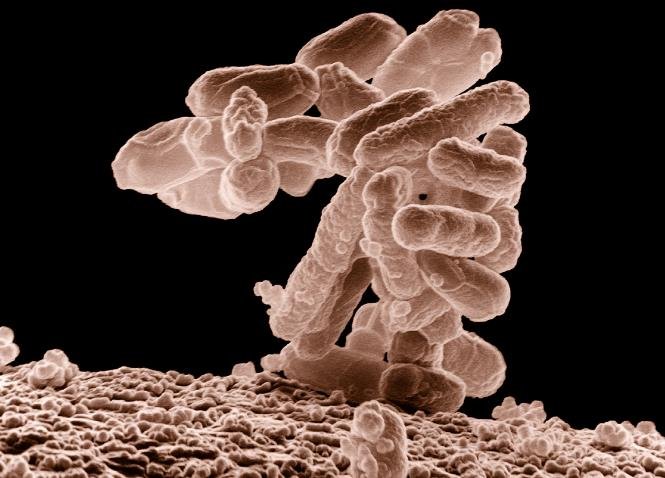Many parasites, including ectoparasites, helminths, and protozoans, can affect the safety of the food you eat. Ectoparasites like fleas and ticks can contaminate food during farming or processing, while helminths such as tapeworms can infect meat products. Protozoans like amoebas and flagellates can cause foodborne illnesses like dysentery. It’s imperative to be aware of these parasites and their impact on food safety to protect yourself and your family from potential infections. In this blog post, we will explore the types of parasites that can affect food and how to prevent parasitic infections through proper food handling and preparation.
Key Takeaways:
- Parasites: Organisms that live in hosts, harming them but rarely causing death.
- Ectoparasites: Include fleas, lice, mites, and ticks; live outside the host and may carry infections.
- Helminths: Parasitic worms that mainly live in the gastrointestinal tract, such as flukes, tapeworms, and roundworms.
- Protozoans: One-celled organisms like amoebas, ciliates, flagellates, and sporozoans causing diseases like dysentery and malaria.
- Global Impact: Parasitic infections affect millions worldwide, with varying symptoms and severity levels.
Types of Parasites Affecting Food
Before delving into the specifics of how parasites can affect the food you consume, it’s important to understand the different types of parasites that can contaminate food. Ectoparasites, helminths, and protozoans are the main culprits when it comes to causing diseases in people through contaminated food. Let’s break down how each type of parasite can impact your food safety.
Ectoparasites
With ectoparasites such as fleas, lice, mites, and ticks, you may be surprised to learn that these parasites don’t just affect your pets – they can also pose risks to your food. These parasites typically live outside the host, but they can carry infections that may transfer to your food when they come into contact with it. The presence of ectoparasites in food can lead to various health issues, so it’s crucial to take precautions to prevent contamination.
Helminths
Helminths, such as flukes, tapeworms, and roundworms, prefer the gastrointestinal tract as their home. They can enter your food through contaminated soil or water, posing a health risk if ingested. To prevent helminth contamination, practice good hygiene and cook food thoroughly. Helminth parasites can cause severe illnesses if not addressed, with symptoms ranging from gastrointestinal problems to serious health complications. It is vital to be vigilant about food hygiene to avoid these risks.
Protozoans
Protozoans like amoebas, ciliates, flagellates, and sporozoans pose a threat to food safety by causing diseases such as dysentery and malaria. These one-celled organisms can contaminate food and water sources, putting anyone who consumes them at risk. It is important to be aware of the presence of protozoans in your food and take steps to prevent contamination that could result in serious health issues.

Preventing Parasitic Infections from Food
Proper Food Handling and Hygiene Practices
Food is a common source of parasitic infections, but you can take steps to protect yourself by following proper food handling and hygiene practices. Make sure to wash your hands thoroughly with soap and water before and after handling food, especially raw meat and vegetables. Wash fruits and vegetables thoroughly under running water to remove any potential parasites. Avoid cross-contamination by using separate cutting boards and utensils for raw meats and ready-to-eat foods.
Cooking and Storage Guidelines to Kill Parasites
Kill parasites in your food by ensuring it is cooked to the right temperature. Cooking meat, poultry, and seafood to an internal temperature of at least 145°F can help eliminate any parasites present. For ground meats, such as beef and pork, make sure they are cooked to 160°F. Leftover foods should be promptly refrigerated at temperatures below 40°F to slow down the growth of parasites. Freezing food at 0°F or below for a certain period can also kill parasites.
Proper cooking and storage guidelines are crucial to prevent parasitic infections from food. By following these practices, you can significantly reduce the risk of ingesting parasites and protect yourself and your family from potentially harmful infections.
Conclusion
Parasites are diverse organisms that can have a significant impact on human health by living in or on a host and causing harm or disease. Ectoparasites like fleas and ticks transmit infections, while helminths like tapeworms and roundworms reside in the gastrointestinal tract, leading to health issues. Protozoans such as amoebas and sporozoans can cause diseases like dysentery and malaria. Understanding parasite types is crucial for preventing and managing infections by practicing good hygiene, avoiding contaminated sources, and seeking medical attention if infected. Early diagnosis and treatment are necessary for effectively managing these harmful organisms.
FAQ
Q: What are parasites?
A: Parasites are organisms that live in another organism (host) and harm the host, although they need the host for survival.
Q: How do parasites affect food?
A: Parasites can contaminate food, especially if proper hygiene and food safety practices are not followed. Consuming food contaminated with parasites can lead to parasitic infections in humans.
Q: What are the three main types of parasites that cause diseases in people?
A: The three main types of parasites that cause diseases in people are ectoparasites, helminths, and protozoans.
Q: What are examples of ectoparasites?
A: Examples of ectoparasites include fleas, lice, mites, and ticks, which live outside the host and may carry infections.
Q: How do helminths affect the human body?
A: Helminths are parasitic worms that usually live in the gastrointestinal tract and can cause symptoms like abdominal pain, diarrhea, and weight loss in infected individuals.
